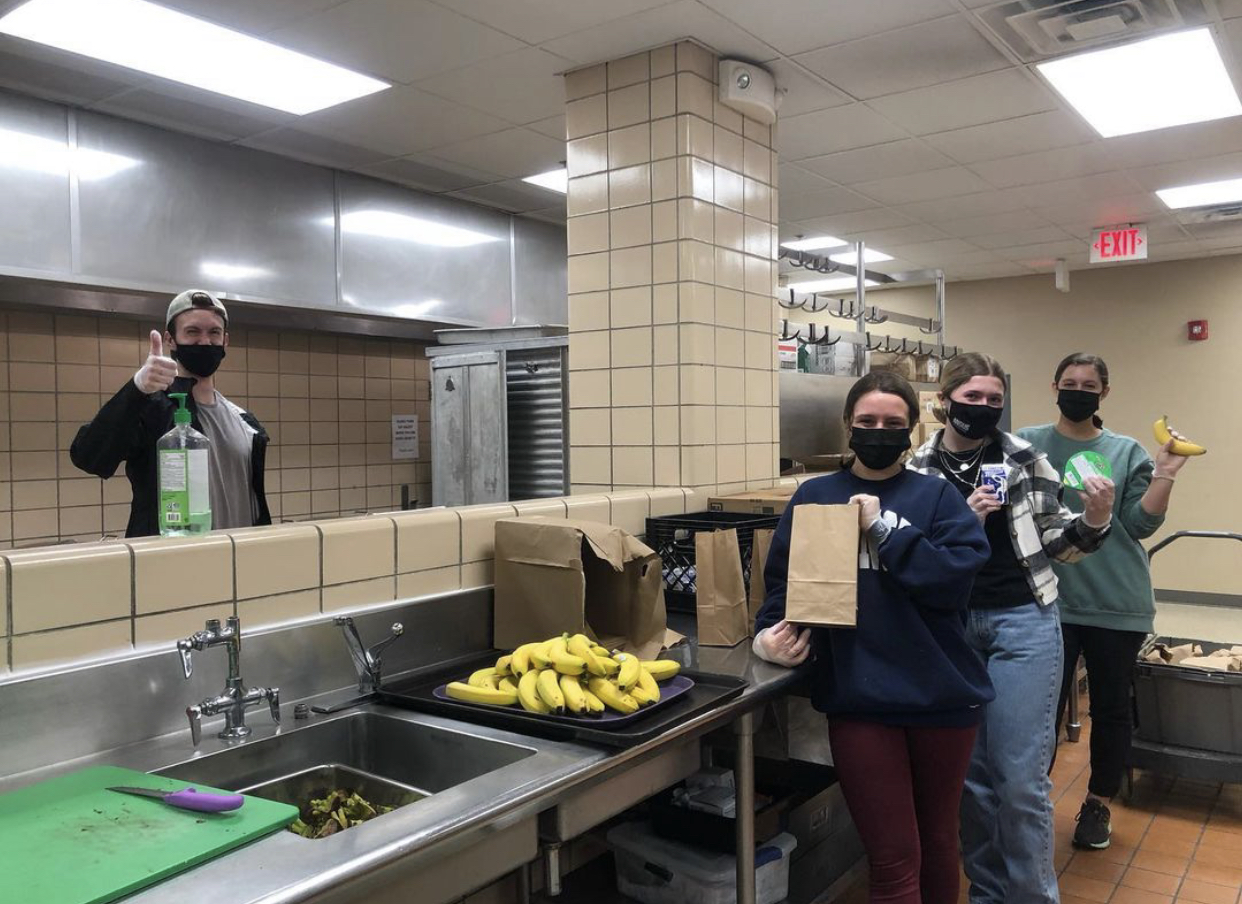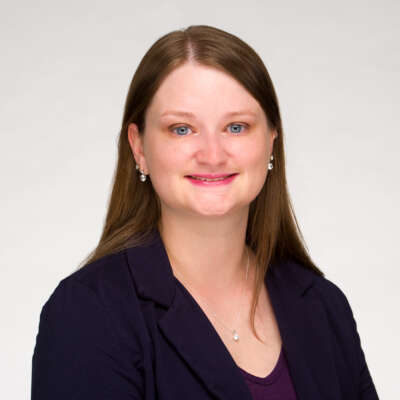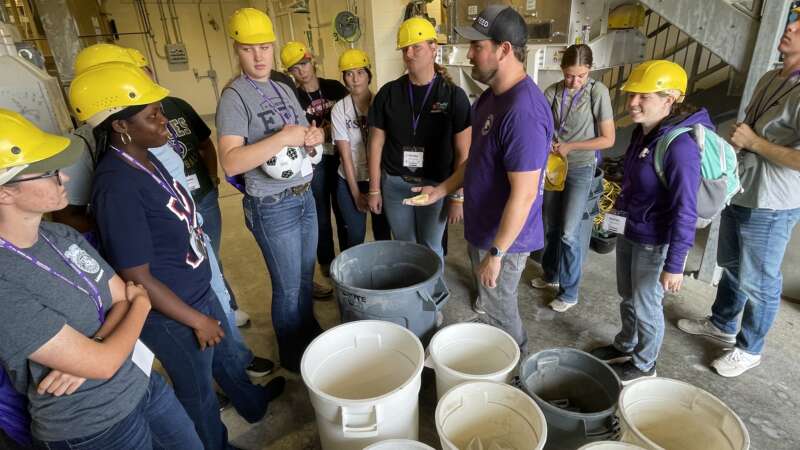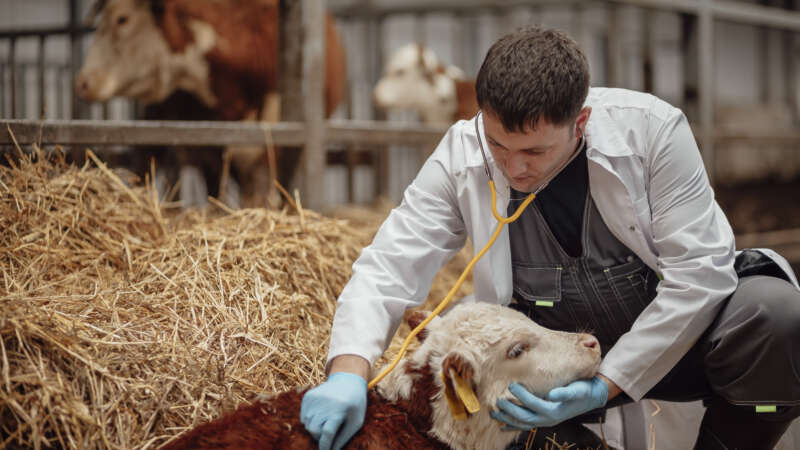Food Security Scholars are working to eliminate food insecurity through a two-phase education and community engagement program
Did you know that Riley County has the highest rate of food insecurity in the state of Kansas? (Kansas Health Matters Food Insecurity Rate). The Food Security Scholars (FSS), housed in Kansas State University’s Staley School of Leadership Studies, works to address this issue and shed light on the vulnerabilities that exist within the food system. FSS is comprised of students, both undergraduate and graduate, who are passionate about creating a more food-secure world.
Scholars undergo two phases of membership:
- In phase one, cohorts meet in the classroom with a focus on curiosity. Through learning activities and discussions centered around food insecurity, scholars share perspectives and use the weekly meetings as an opportunity for academic and creative growth.
- In phase two, scholars take an individualized approach to addressing food security. After being assigned a mentor and a service-learning placement, scholars complete projects within the community.
After investing a year with FSS, scholars graduate from the program,’ and can then serve as a member of the Student Advisory Leadership Team (SALT).
A unique aspect of FSS is its multidisciplinary nature. FSS is open to students of any major or career path, which creates a space for scholars to share diverse perspectives while working toward a common goal. Evan Bergeron, a pre-med student majoring in human health biology, is a scholar from the inaugural cohort and current director of stakeholder relations on SALT. Learning about food security is important to Evan’s career because it has taught him the importance of nutrition habits and the vitality of access to nutrient-dense foods in a community.
“I did not just want to join a club, I wanted to join an organization that was making a direct impact in students’ lives,” said Evan. “I wanted to learn about issues that really matter and that people weren’t talking about — food security is one of them.”
Because FSS has students from a variety of majors, phase-two projects are highly individualized to encourage students to pursue projects of personal and professional interest. In the past, these projects have consisted of editing bylaws for the Food and Farm Council, working on community action teams and completing literature reviews to identify gaps in food security education.
Jessica Ramirez, graduate student in sociology, anthropology and social work, is centering her phase-two project around rural grocery stores. Through a survey, Jessica is learning more about the current state of rural grocery stores and food access, as well as how the stores and owners are operating amidst the pandemic.
For being rather new, FSS is a highly successful organization. FSS currently operates on a grant provided by Farm Credit Services, however, increased financial support would enable students to have better access to opportunities. One of the ways philanthropic gifts would benefit FSS is through its support of phase-two projects. Olivia Haley, graduate student in horticulture and natural resources, is creating a food resource map for her project, depicting different food sources and how to access services throughout Manhattan. Funding would enable her to work with a graphic designer and web developer to transition her map into a mobile application and website.
For others, sponsorship would enable travel and attendance to conferences and learning opportunities. This spring break, four scholars visited Kansas City to learn about the root causes of homelessness with the Alternative Breaks program. This trip was made possible for these scholars by the support of FSS. In addition to Alternative Breaks, FSS hopes to eventually take international service trips in conjunction with the Global Food Systems Leadership and Nonprofit Leadership programs.
Other than career development opportunities for scholars, financial support will aid in the growth and mobilization of FSS as a whole. With only one staff member, Hattie Polson, who is also a full-time student, additional funds could support the hiring of another student coordinator. Additionally, FSS could offer trainings at other universities to help them create similar systems that work for their communities.
Jessica says that additional funds would help establish the first FSS scholarship. In her cohort, Jessica met many scholars who had experienced food insecurity themselves. A scholarship could recognize students who are giving of their time to battle food insecurity.
“Food Security Scholars is full of dreamers, change-makers and future leaders,” Jessica said. “When you support Food Security Scholars, you are not only supporting an incredible program, you are empowering students to conceptualize change while providing them the means to make that change a reality.”
To learn more about Food Security Scholars, visit Food Security Scholars (k-state.edu). Give to Food Security Scholars online or contact Heather Strafuss via email or at 785-775-2146.
Originally published in March 2022.




